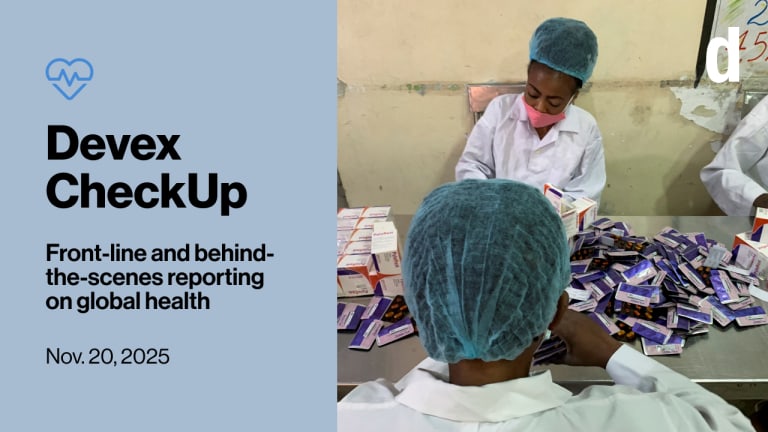
In two suburbs of the American city of St. Louis, separated by fewer than 30 miles, the odds of living a long and healthy life could not be more different. If you reside in the mostly white, wealthy suburb of Wildwood, your life expectancy is 91.4 years. But if you live in the mostly black, poorer suburb of Kinloch, your life expectancy is only 55.9 years.
The same disparity between rich and poor is found around the world. Moving to a country where much of the population lives in extreme poverty, Nigeria, consider this: only 6 percent of women in the lowest wealth quintile can access a skilled birth attendant — critically important for reducing maternal mortality — while 85 percent of women in the top wealth quintile can.
Health inequities exist in every country, if not often at these extremes. Such inequities represent, in the words of Martin Luther King, “the most shocking and inhuman” of injustices. They call for nothing less than full-scale national mobilization in each country to take the comprehensive set of actions required to reduce — and ultimately eliminate — them.
One response: National health equity strategies
As the persistence of deep health inequities demonstrates, progress on overall health indicators — which the world experienced during the Millennium Development Goals era — far from guarantees a reduction in health inequities. Instead, a deliberate effort is required — and an area this complex will require thoughtful and thorough strategies.
One concrete step that could serve as a foundation for comprehensive action toward health equity would be for countries to develop and implement National Health Equity Strategies, grounded in human rights and nondiscrimination. What might these strategies look like?
They would not be limited to a single disease. They would cover the full range of determinants of health, both health care systems and things such as nutritious food, clean water, adequate sanitation, quality housing, clean environments, safe employment, and even empowerment. National Health Equality Strategies would encompass all populations experiencing health inequities, as diverse as indigenous peoples, sexual and gender minorities, and people with disabilities. And they would encompass both solutions that would reduce disparities for many populations, such as those that address financial barriers to health care, and solutions that are specific to only one or several populations, such as health passports for migrants and ensuring community — rather than institutional — living for people with disabilities.
National Health Equity Strategies would identify the many causes of inequities — addressing each population — offer specific actions to respond, and enable accountability by including specific timelines and targets. For example, plans might seek to reduce, within five years, disparities in incidence of new cases of diabetes between indigenous and non-indigenous populations by W percent; disparities in the incidence of new cases of tuberculosis between migrant and non-migrant populations by X percent; disparities in access to skilled birth attendants between rich and poor women by Y percent; and the proportion of sexual and gender minorities who experience discrimination at health facilities by Z percent. Accountability would also include regular reviews by both government leaders and members of populations who are experiencing health inequities.
The importance of participation
Critically, people from populations experiencing health inequities should be central to the processes of developing any strategies around this challenge. This will help ensure that the approaches are effective and that they accurately reflect the realities and priorities of populations experiencing health inequities. Furthermore, inclusion can, in itself, help chip away at the exclusion that is central to marginalization itself.
These blueprints to end health inequities should also establish forums for marginalized populations to take ownership of the strategies, and empower them to better hold policymakers to account. These might include, for instance, national dialogues where policymakers must answer to the population, and high-profile review committees that include policymakers, academics, civil society, and members of marginalized populations. National dialogue review committee findings will be widely publicized, entering the public and political spheres.
Along with being owned by people who typically have little power, they will need to have strong political support if the law and policy changes and resources required for their implementation is to follow. Indeed, these health equity strategies would not be siloed from other national processes. Rather, the plans of action that the strategies include should be fully integrated into national health strategic plans, along with strategic plans of other sectors.
Similar strategies today
Commendably, several high-income countries and jurisdictions, including Norway, Wales, England, Scotland, and California, have developed health equity strategies that share many of these features — intersectoral, taking heed of the obstacles that different populations face, and offering solutions.
Yet such strategies remain rare. And even where they exist, they tend not to incorporate the comprehensive action plans with clear and ambitious yet achievable timelines and targets, which will make implementation most likely. Nor are they typically linked to processes that provide marginalized populations the forums to take ownership of the strategies and empower them to better hold policymakers to account.
Working closely with the Stop TB Partnership, USAID, and other partners, including people who have had and been affected by tuberculosis, the O’Neill Institute for National and Global Health Law at the Georgetown University Law Center is promoting National Health Equity Strategies, and has drafted an implementation guide that could aid in developing them.
We are holding an online consultation, open to all, beginning on April 9 on the guide and overall concept of National Health Equity Strategies. We hope you will join us. You will be able to comment on the guide itself along with issues of health equity that could inform the guide and efforts to create political support for this approach. We are also planning several webinars.
Through the Sustainable Development Goals, the world promised to leave no one behind. Join this initiative to contribute to making that promise real.








